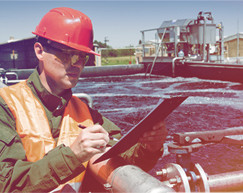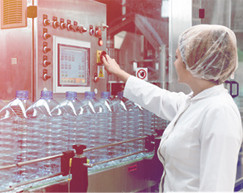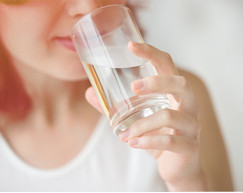FAQ about Monochloramine
The Internet is full of fake news. Monochloramine has its own.
Discover here the most common ones and the true science about monochloramine.
FAQ 1. Is monochloramine already used in drinking water?
YES. Monochloramine is one of the three EPA listed disinfectants under the Safe Drinking Water Act.
As of now, about 50% of the people in the United States receive water with monochloramine from the city. Because of its ability to provide a much more consistent residual in the distribution system, bigger municipality are more likely to convert from regular chlorine to monochloramine, such as: Philadelphia, Miami, Denver, Los Angeles, San Francisco, Portland and many more.
FAQ 2. Does monochloramine have any effect of human health? Will Monochloramine irritate my eyes and skin?
NO, water with monochloramine at drinking water levels and meets EPA regulatory standards is safe to use for (source, EPA website):
- Drinking
- Cooking
- Bathing
- Other household uses
The same results are presented in a report issued by WHO (WHO, Guidelines for Drinking-water Quality, 2000) in which the use of monochloramine in drinking water is discussed and the effect of monochloramine on humans is discussed. The results confirm that monochloramine at drinking water concentrations has no effect on human body and health.
Monochloramine is well recognized as tasteless and odorless when compared with chlorine and chlorine dioxide at drinking water levels (2-3 ppm as total chlorine).
A study published by Daniel et Al., in 1991 reported that there was no adverse effect in terms of eye and skin irritation with the use of monochloramine with concentrations even higher than the ones allowed in drinking water, demonstrating that monochloramine cannot irritate skin, eyes, nose and respiratory tract at average drinking water level.
FAQ 3. Is monochloramine effective against other waterborne pathogens?
YES. Although most of the studies published in the peer reviewed scientific literature are focused on the efficacy of monochloramine against Legionella, monochloramine is efficient against other waterborne pathogens as well, such as non-tuberculosis mycobacteria (NTMs) and pseudomonas.
There are some studies published in the literature that suggest that while monochloramine is the most effective disinfectant for Legionella remediation, it could potentially favor the growth of NTMs. The growth of NTMs was a result of low monochloramine levels in the city distribution system. Even if monochloramine is more stable than chlorine, it could be challenging to maintain a high residual everywhere in the water distribution system of a big city. NTMs are generally more resistant than Legionella and therefore require consistent monochloramine levels in the 2-3 ppm range. These residuals are easily achievable in a building water system with the precise monochloramine dosage and control of the Sanikill system.
FAQ 4. Will monochloramine have any impact on the water quality?
NO. Monochloramine will not have any impact on water quality and vice versa.
Typical water quality parameters such as hardness, alkalinity, conductivity, and dissolved ions do not have any impact on monochloramine. Monochloramine is also not influenced by pH at drinking water pH ranges.
The US-EPA recently published a full study about the application of Sanikill monochloramine in a healthcare facility in Ohio (LINK PAPER). The EPA had water data for 16 months prior to the monochloramine system installation and kept monitoring the same parameters for 16 more months after the monochloramine system startup.
The US-EPA not only demonstrated the unique efficacy of Sanikill monochloramine against Legionella, Pseudomonas and NTMs, but also confirmed that the addition of monochloramine to the water had no impact on water quality, disinfection by products and had no effect on any plumbing component.
SANIKILL is the patented
technology against Legionella
3 scientific articles to discover why
it is the best solution for waterborne pathogens prevention.






